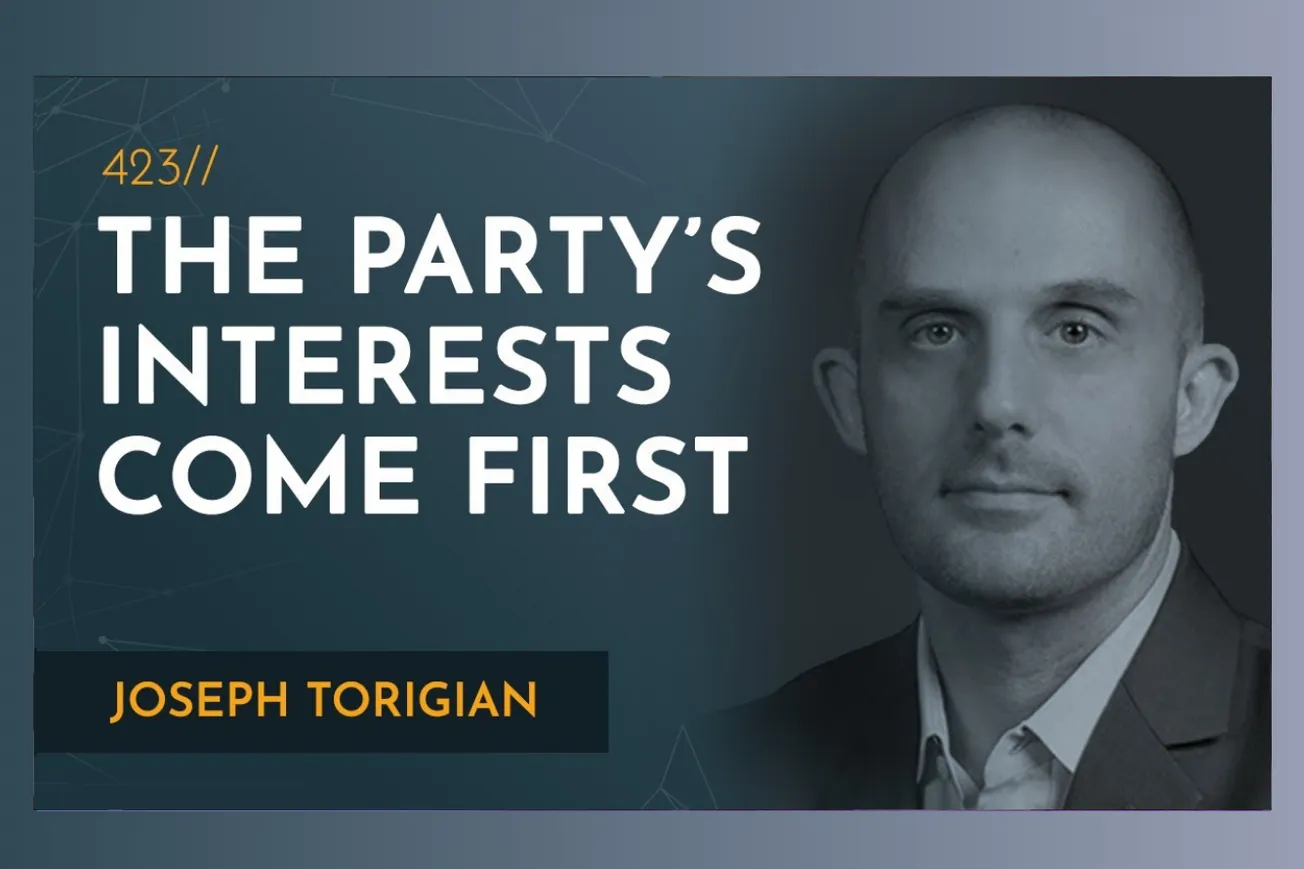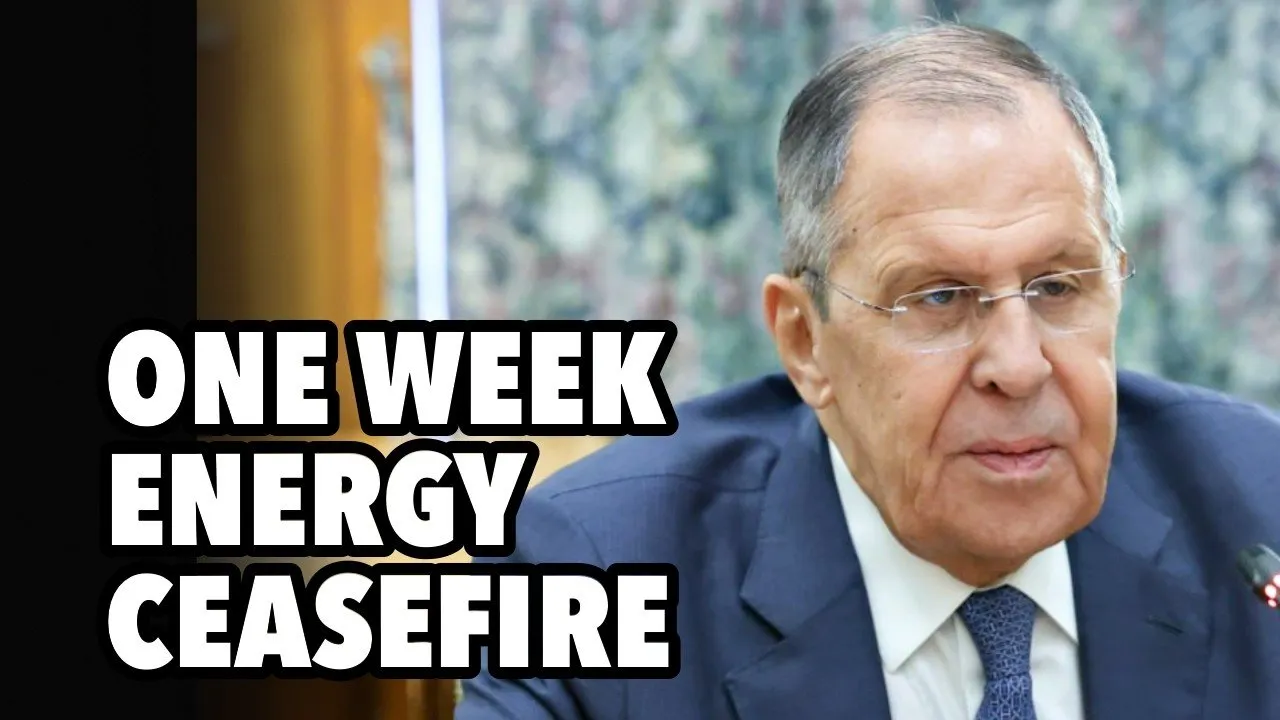Table of Contents
Scholar Joseph Torigian reveals how the life of Xi Zhongxun—Xi Jinping's father—illuminates the brutal internal dynamics of the Chinese Communist Party and explains the authoritarian strategies driving China's current leadership under Xi Jinping.
Key Takeaways
- Xi Zhongxun's life exemplifies the paradox of revolutionary loyalty despite repeated persecution by the Chinese Communist Party
- The Great Leap Forward and Cultural Revolution created catastrophic trauma that shaped subsequent Chinese leadership approaches to reform and control
- Chinese Communist Party governance relies on campaigns that intentionally go "too far" before being reined in as a feature of authoritarian control
- Self-criticism sessions represent sophisticated psychological control mechanisms requiring party members to internalize ideological submission while navigating political survival
- Deng Xiaoping's reforms succeeded where Soviet glasnost failed by limiting political liberalization while embracing economic transformation
- Xi Jinping's consolidation of power reflects lessons drawn from Soviet collapse about maintaining ideological control over history and military loyalty
- Revolutionary societies use historical narrative as moral education to inspire sacrifice and maintain legitimacy across generational transitions
- The "princeling" class faces unique challenges proving revolutionary credentials while leveraging inherited political networks for advancement
- Campaign-based governance creates implementation dilemmas where local officials must intuit unstated leadership preferences while managing contradictory directives
Timeline Overview
- 00:00–08:30 — Introduction and Research Methodology: Joseph Torigian explains his transition from planned article to comprehensive biography, research challenges with authoritarian sources, interview processes in Hong Kong and Taiwan
- 08:30–18:45 — Revolutionary Societies and Historical Narrative: Discussion of how utopian collectivist movements use history for moral education, Xi Jinping's concept of "self-revolution," and the role of sacrifice in maintaining party legitimacy
- 18:45–28:20 — Xi Zhongxun's Revolutionary Origins: Born 1913 after Qing dynasty collapse, childhood in Shaanxi province near ancient imperial capitals, early exposure to extreme poverty and historical grandeur, teenage assassination attempt and first imprisonment
- 28:20–38:15 — Early Party Membership and Failures: Release from prison, family deaths during incarceration, infiltration of Nationalist forces, the disastrous Liang Dang mutiny, and second imprisonment by fellow Communists in 1935
- 38:15–48:30 — Chinese Revolution Compared to Soviet and Cuban Models: Mao's protracted rural strategy versus urban coups, decades-long base area development, near-annihilation experiences, and emergence of Mao as unifying leader
- 48:30–58:45 — Transition from Insurgency to Governance: Xi Zhongxun's rapid rise to Northwest Bureau leadership, challenges of governing ethnic minority regions, campaign dynamics and quota systems, anti-corruption efforts within party ranks
- 58:45–68:20 — The Great Leap Forward Catastrophe: Mao's departure from gradual transformation, elimination of rule of law, creation of devotional politics, famine conditions, and the psychology of revolutionary faith overriding practical reality
- 68:20–78:35 — Cultural Revolution Persecution Patterns: Xi Zhongxun's personal relationships with purge targets, Gao Gang affair and Liu Shaoqi conflicts, self-criticism writing requirements, Deng Xiaoping's role in political investigations
- 78:35–88:50 — Campaign Strategy and Implementation Dilemmas: How campaigns intentionally create excess before correction, local official navigation of contradictory signals, the politics of course correction, and ideological heresy accusations
- 88:50–98:25 — Deng Xiaoping Reform Era Challenges: Post-Cultural Revolution rehabilitation, market economy justification within socialist framework, spiritual civilization maintenance, comparison with Soviet destalinization approaches
- 98:25–108:40 — Chinese versus Soviet Reform Trajectories: Mao's succession lessons from Stalin's death, leadership transition failures, Gorbachev versus Deng approaches, Xi Jinping's criticism of Soviet political reforms and military control loss
Revolutionary Loyalty and the Psychology of Persecution
The central paradox of Xi Zhongxun's life illuminates a fundamental dynamic within revolutionary movements: how persecution by the party often strengthens rather than weakens ideological commitment. Torigian's research reveals that experiences which might logically turn someone against an organization frequently produce the opposite effect—deeper devotion and determination to prove revolutionary credentials.
This psychological mechanism operates through what might be called "suffering validation," where enduring hardship becomes proof of one's commitment to the revolutionary cause. Xi Zhongxun's repeated imprisonments, family losses, and political persecutions created a narrative of sacrifice that enhanced rather than diminished his party standing once rehabilitation occurred.
The pattern extends beyond individual psychology to organizational culture. The Chinese Communist Party developed sophisticated mechanisms for converting trauma into loyalty through ritualized confession and ideological reaffirmation. Self-criticism sessions served dual purposes—extracting political intelligence while forcing participants to verbally commit to party supremacy even when they were being punished by it.
Xi Zhongxun's ability to survive multiple purges while maintaining party membership demonstrates the complex navigation required within authoritarian systems. Success depended not on avoiding persecution but on managing it correctly—accepting punishment while maintaining ideological purity, confessing mistakes while preserving essential political relationships, and demonstrating loyalty precisely when that loyalty was being tested most severely.
The implications for understanding contemporary Chinese politics prove significant. Xi Jinping witnessed his father's persecution-loyalty cycle from childhood, observing how revolutionary dedication could survive and even benefit from systemic abuse. This early exposure likely influenced his own approach to party discipline and his understanding of how authoritarian institutions maintain control through cycles of punishment and rehabilitation.
Campaign Politics and Controlled Chaos
The Chinese Communist Party's governance through campaigns represents one of its most distinctive and effective control mechanisms. Unlike Western democratic systems that seek to avoid policy overshoots, the CCP deliberately engineers excess as a feature of its decision-making process.
Campaign dynamics operate on a predictable cycle: initial moderate goals escalate into radical implementation as local officials compete to demonstrate loyalty, excesses accumulate until damage becomes obvious, then course correction occurs with blame assigned to overzealous implementers while central leadership claims credit for eventual moderation.
This system serves multiple functions. It generates massive mobilization for regime priorities while providing built-in mechanisms for adjusting course when policies prove unworkable. It creates competition among subordinates to prove dedication while preserving leadership flexibility to abandon failed initiatives. Most importantly, it maintains constant pressure on party members to demonstrate active loyalty rather than passive compliance.
Xi Zhongxun's role in campaign management reveals the implementation challenges facing mid-level officials. They received broad directives without specific guidance about priorities, methods, or limits. Success required intuiting unstated leadership preferences while managing practical constraints and competing demands from multiple superiors.
The psychological pressure on implementers proves enormous. Being too moderate risks accusations of insufficient revolutionary commitment. Being too radical creates practical problems that could trigger blame when course corrections occur. Officials must navigate these contradictions while maintaining the appearance of unified support for policies they may privately doubt.
Modern Chinese governance retains these campaign characteristics despite economic modernization. Anti-corruption drives, poverty alleviation programs, and environmental initiatives all follow similar patterns of initial moderation, escalating implementation, excess management, and eventual stabilization around sustainable policies.
The Great Leap Forward and Revolutionary Faith
The Great Leap Forward catastrophe illuminates how revolutionary movements can produce devastating policy failures through the interaction of ideological commitment and authoritarian decision-making structures. Mao's agricultural and industrial transformation campaign created famine conditions that killed millions while party members maintained public support for policies they knew were failing.
The disaster originated in Mao's shift from gradual socialist transformation to immediate revolutionary change. This transition eliminated institutional constraints that might have provided feedback about policy effectiveness. Legal frameworks gave way to campaign dynamics, technical expertise was subordinated to political loyalty, and criticism of outcomes became tantamount to ideological betrayal.
Xi Zhongxun's experience during this period demonstrates how even senior officials became trapped within systems they recognized were producing catastrophic results. His northwest regional leadership position gave him direct knowledge of famine conditions, yet political survival required continued public support for central policies while attempting behind-the-scenes damage limitation.
The psychological dimensions prove particularly striking. Many party members genuinely believed that their inability to understand Mao's genius represented personal failing rather than flawed policy design. Revolutionary faith created cognitive frameworks where policy failures became evidence of insufficient implementation rather than bad decisions, generating cycles of escalating commitment to demonstrably failing approaches.
Torigian notes that by 1959, "nobody would dare to go to Mao and tell him that they understood that something had gone deeply wrong" because successful revolution against overwhelming odds had created unshakeable faith in Mao's judgment. This dynamic illustrates how authoritarian systems can become trapped by their own legitimacy narratives.
The Great Leap Forward's legacy profoundly influenced subsequent Chinese development strategies. The trauma of mass starvation caused by ideological overreach created strong preferences for pragmatic policy-making and gradual implementation of major reforms. This experience helps explain why Deng Xiaoping's market-oriented reforms proceeded cautiously compared to Soviet shock therapy approaches.
Self-Criticism and Ideological Control
The practice of self-criticism represents one of the Chinese Communist Party's most sophisticated control mechanisms, functioning simultaneously as confession, punishment, intelligence gathering, and ideological reinforcement. Xi Zhongxun's extensive experience writing self-criticisms reveals the complex psychological and political calculations required for survival within authoritarian systems.
Self-criticism sessions require participants to acknowledge wrongdoing while demonstrating continued loyalty to the institution punishing them. This creates cognitive dissonance that must be resolved through deeper internalization of party authority. Participants cannot simply admit mistakes; they must convince reviewers of genuine ideological transformation while avoiding excessive admissions that could justify harsher punishment.
The technical challenges of writing effective self-criticisms illustrate the broader dynamics of authoritarian survival. Xi Zhongxun had to balance multiple competing demands: admitting sufficient fault to satisfy critics without providing ammunition for future persecution, demonstrating sincere repentance without appearing to question fundamental party premises, and coordinating his admissions with what others might reveal about his activities.
Deng Xiaoping's role as reviewer of Xi Zhongxun's self-criticisms adds another layer of complexity to the process. Future reformist leader Deng was simultaneously helping to persecute Xi Zhongxun while presumably recognizing the arbitrary nature of many charges. This dynamic shows how even sympathetic figures within authoritarian systems participate in mechanisms they may privately oppose.
The institutional function of self-criticism extends beyond individual cases to broader organizational maintenance. These practices create detailed records of internal conflicts, establish precedents for acceptable versus unacceptable behavior, and reinforce hierarchical relationships through ritualized submission. They also serve as early warning systems for detecting potential opposition before it becomes threatening to regime stability.
Contemporary Chinese politics retains modified versions of self-criticism through "democratic life meetings" and anti-corruption investigations that require officials to confess ideological weaknesses and policy mistakes. While less extreme than historical practices, these mechanisms continue serving similar functions of maintaining discipline and reinforcing party supremacy over individual interests.
Reform Dilemmas and Soviet Comparisons
The contrast between Chinese and Soviet approaches to communist system reform illuminates critical factors determining authoritarian regime survival versus collapse. Both systems faced similar challenges of economic stagnation, ideological exhaustion, and legitimacy crises, yet pursued dramatically different solutions with opposite outcomes.
Chinese reform under Deng Xiaoping prioritized economic liberalization while maintaining political control. This approach acknowledged system failures in specific domains while preserving core institutional authority. Market mechanisms were introduced gradually and justified as temporary measures serving ultimate socialist goals rather than fundamental ideological shifts.
Soviet reform under Gorbachev combined economic and political liberalization in ways that ultimately undermined regime foundations. Glasnost policies encouraged criticism that extended from specific policy failures to broader system legitimacy. Democratic reforms created alternative power centers that competed with Communist Party authority.
Xi Zhongxun's perspective on these developments proves particularly revealing. Torigian discovered through Italian Communist Party archives that Xi Zhongxun "was quite a fan of Gorbachev," appreciating reforms that addressed obvious system problems. However, this admiration coexisted with recognition that extensive liberalization created existential risks for communist governance.
The challenge facing reformist leaders involved managing what Torigian describes as competing logics: "Do you save your system by reforming fast enough that you keep ahead of its challenges or do you need to avoid reform in the first place because it opens up weaknesses in your system that you can't control?"
Xi Jinping's later assessment of Soviet collapse emphasizes two critical failures: losing control over ideology and history, and failing to maintain military loyalty when faced with regime challenges. His criticism that "there was no real man who came forward to use violence to resolve the situation" reflects judgment that Gorbachev's restraint during critical moments allowed regime opposition to gain irreversible momentum.
These historical lessons directly influence contemporary Chinese policy approaches. Economic reforms continue within carefully managed political constraints designed to prevent feedback effects that might challenge party supremacy. Historical narrative remains tightly controlled to prevent "historical nihilism" that might undermine regime legitimacy through excessive focus on past mistakes.
Princeling Politics and Inherited Authority
Xi Jinping's background as a "princeling"—the child of a senior Communist Party official—creates unique dynamics within Chinese elite politics that help explain his eventual rise to supreme leadership and his approach to governing once in power. The princeling phenomenon represents both advantage and liability within revolutionary systems that officially emphasize meritocratic advancement.
The advantages of princeling status prove obvious: inherited networks, institutional knowledge, and presumed loyalty based on family stake in regime survival. Xi Jinping's access to party elites through his father's connections provided opportunities unavailable to officials from ordinary backgrounds. His understanding of internal party dynamics developed through childhood exposure to high-level political discussions.
However, princeling status also creates significant challenges and vulnerabilities. Revolutionary ideology emphasizes equality and mass origins, making inherited privilege potentially suspect. Princelings must prove their revolutionary credentials through exceptional dedication rather than relying on family connections. They face higher scrutiny and expectations while navigating resentment from colleagues who lack similar advantages.
Xi Jinping's political career demonstrates sophisticated management of these dynamics. His willingness to serve in difficult rural positions during the Cultural Revolution, his gradual advancement through provincial leadership roles, and his cultivation of personal relationships across party factions all reflect strategies for legitimizing inherited position through demonstrated competence and loyalty.
The broader implications for Chinese elite politics involve questions about regime transformation and succession. Princelings represent continuity with revolutionary origins while potentially embodying evolution toward more conventional elite reproduction. Their increasing prominence raises questions about whether Chinese communism is transitioning toward hereditary oligarchy or maintaining meritocratic elements within family-influenced networks.
Xi Jinping's consolidation of personal authority since assuming leadership suggests that princeling background may provide advantages in internal power struggles. His deep understanding of party history, his extensive network of relationships developed over decades, and his perceived legitimacy as representing revolutionary continuity all contributed to his ability to eliminate rivals and centralize decision-making.
Implementation Challenges and Bureaucratic Navigation
The dilemmas facing officials tasked with implementing party policies reveal fundamental tensions within authoritarian governance systems. Xi Zhongxun's career as a regional leader illustrates how mid-level officials must navigate contradictory demands while maintaining the appearance of unified support for central directives.
Implementation challenges begin with ambiguous instructions that require local officials to guess at leadership intentions. Central policies often specify goals without providing methods, priorities without indicating trade-offs, or timelines without acknowledging resource constraints. Officials must interpret these directives while managing practical limitations and competing pressures from multiple superiors.
The political risks of implementation prove enormous. Being too cautious risks accusations of insufficient revolutionary enthusiasm or passive resistance to central authority. Being too aggressive creates practical problems that could trigger blame when policies produce unintended consequences. Officials must calibrate their responses to unstated expectations while preserving flexibility to adjust when leadership preferences change.
Torigian notes that implementers "want to do what the top leader wants them to do, but they also but they're not even sure what that is." This uncertainty creates systematic biases toward excessive compliance as insurance against accusations of insufficient loyalty. The resulting policy overshoots become features rather than bugs of the campaign system.
The information environment compounds these challenges. Local officials must report progress while avoiding responsibility for problems they cannot control. They need accurate information for policy implementation while managing how that information might be used against them in future political conflicts. The resulting distortions create feedback loops where central leadership receives filtered information about policy effectiveness.
Modern Chinese governance continues exhibiting these implementation dynamics despite economic modernization and administrative reforms. Anti-corruption campaigns, environmental protection initiatives, and social stability maintenance all demonstrate similar patterns of local official adaptation to central directives that provide goals without specifying methods or acknowledging trade-offs.
Historical Narrative and Revolutionary Legitimacy
The Chinese Communist Party's approach to historical narrative represents a sophisticated strategy for maintaining legitimacy across generational transitions. Unlike democratic systems where competing parties offer alternative visions, revolutionary regimes must convince new generations to accept sacrifice for goals they did not choose while maintaining faith in institutions that have made obvious mistakes.
Xi Jinping's concept of "self-revolution" addresses this challenge by reframing historical failures as learning opportunities rather than legitimacy threats. This approach acknowledges problems while claiming that the party's ability to recognize and correct mistakes demonstrates superiority over alternative systems. Historical education becomes moral inspiration rather than factual analysis.
The practice extends beyond public propaganda to internal party education and elite socialization. Rising officials learn party history through frameworks that emphasize heroic struggle and eventual success while minimizing systematic analysis of policy failures or structural problems. This creates cognitive frameworks where current challenges become tests of revolutionary will rather than evidence of institutional inadequacy.
Xi Zhongxun's life story exemplifies how individual sacrifice narratives support broader regime legitimacy. His willingness to endure persecution while maintaining loyalty provides templates for contemporary officials facing their own challenges. The family's continuation of party service across generations demonstrates institutional continuity despite individual hardships.
The contemporary implications prove significant for understanding Chinese domestic and international behavior. Leadership confidence in historical narrative superiority influences approaches to foreign criticism and domestic dissent. Belief in inevitable "national rejuvenation" shapes long-term strategic planning and risk tolerance in international conflicts.
However, narrative control also creates vulnerabilities. Excessive emphasis on historical inevitability can produce overconfidence about current policies. Suppression of alternative interpretations may reduce institutional learning capacity. The gap between official narratives and private knowledge among educated populations creates potential legitimacy risks if economic performance or international standing deteriorates significantly.
Conclusion
Xi Zhongxun's extraordinary life journey from teenage revolutionary to senior party leader illuminates the complex dynamics that have shaped modern China's authoritarian governance system. His ability to maintain unwavering loyalty despite repeated persecution by his own party reveals the psychological mechanisms through which revolutionary movements convert trauma into deeper ideological commitment. The campaign-based governance system he helped implement demonstrates how authoritarian regimes deliberately engineer controlled chaos to maintain mobilization while preserving leadership flexibility. His experience during catastrophic periods like the Great Leap Forward and Cultural Revolution created lasting trauma that influenced subsequent Chinese approaches to reform, emphasizing economic liberalization while maintaining strict political control—lessons that directly inform Xi Jinping's contemporary leadership style and his determination to avoid the Soviet Union's fate through careful management of historical narrative and institutional authority.
Practical Implications
- For China Analysis: Focus on implementation dynamics and local official behavior patterns rather than just central policy announcements, as mid-level navigation of contradictory directives often determines actual outcomes
- For Historical Research: Apply "mosaic theory" approaches when studying authoritarian systems, combining multiple sources with awareness of systematic omissions rather than active disinformation in official materials
- For Political Risk Assessment: Monitor campaign cycles and their inevitable overshoot patterns to anticipate policy corrections and identify timing for engagement opportunities with Chinese institutions
- For Diplomatic Strategy: Recognize that Chinese leadership confidence stems from historical narrative frameworks emphasizing inevitable success despite temporary setbacks, requiring patient long-term approaches rather than short-term pressure tactics
- For Authoritarian Studies: Examine how persecution-loyalty dynamics operate across different revolutionary movements to understand resilience mechanisms that enable regime survival through crisis periods
- For Leadership Development: Study how princeling backgrounds create both advantages and vulnerabilities in elite political competition, with implications for succession planning and factional dynamics
- For Institutional Design: Understand how self-criticism and campaign mechanisms serve multiple control functions simultaneously, providing models and warnings for organizational discipline systems
- For Strategic Planning: Account for how revolutionary legitimacy narratives influence risk tolerance and decision-making timeframes in authoritarian regimes facing external pressure or internal challenges





